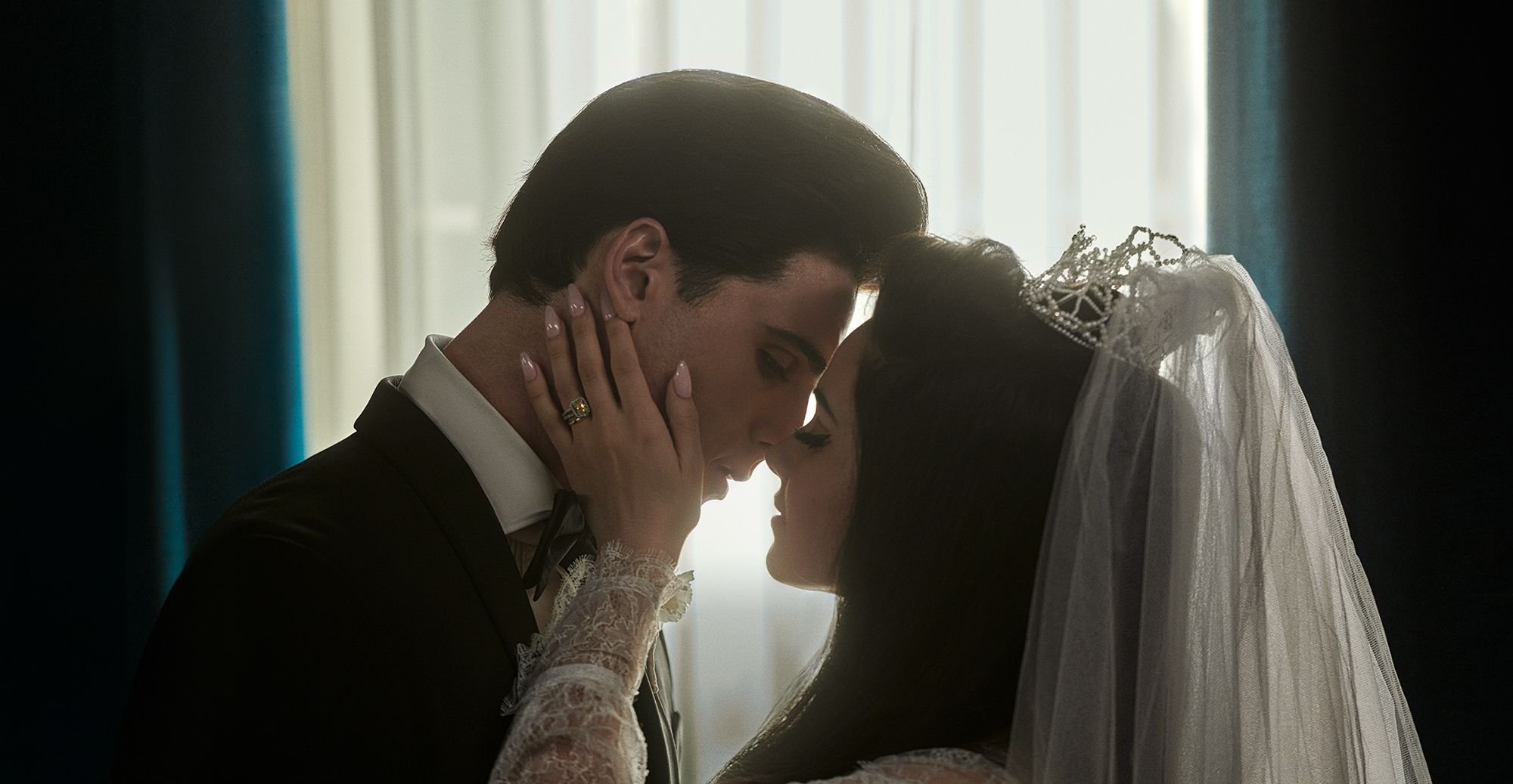
Movie review: ‘Priscilla’
Hip-swiveling icon Elvis Presley was a singular figure in many respects. As “Priscilla” (A24), a dramatization of the courtship that eventually led to his marriage demonstrates, his take on romance was one of them.
Indeed, the relationship that writer-director Sofia Coppola’s screen version of Priscilla Presley’s 1985 memoir “Elvis and Me” charts is a strange mix of the respectable and the unsavory. Start with the fact that the star’s future wife (Cailee Spaeny) was only 14 when she first met the 24-year-old King of Rock and Roll (Jacob Elordi).
The stepdaughter of a U.S. Air Force officer (Ari Cohen) stationed in Wiesbaden in what was then West Germany, star-struck Priscilla Beaulieu gets to know Elvis during his own overseas service in the military. Once his stint in the Army is over, the two maintain a long-distance attachment until she graduates and moves to Memphis, Tennessee, under his auspices.
Though the pair’s deepening bond is a source of understandable concern to both her parents – Dagmara Dominczyk plays her mom, Ann – Elvis manages to convince them that his intentions are honorable. And, true to his word, he sees to it that the quasi-cohabitation that follows Priscilla’s return to the States remains chaste until their wedding night.
The screenplay makes clear, however, that this restraint was a source of discontent to Priscilla. Even for viewers committed to the virtue of chastity in the teeth of contemporary mores, moreover, Elvis’ self-control comes across as being at least partly influenced – and, to that extent, tainted – by his desire to control his much-younger partner.
This moral ambiguity typifies the ethical fault line on which the fact-based plot uneasily sits. Can it ever be healthy, after all, for a world-famous, wildly rich and therefore powerful adult to carry on even a nonphysical affair with a freshman in high school?
The film skirts a number of such red lines and takes the audience with it. Thus, Elvis isn’t exactly an addict, but he certainly pops a lot of prescription pills (and experiments, along with Priscilla, with LSD). Nor is he a full-blown abuser, yet his explosive temper – fueled, perhaps, by all the drugs he’s taking – finds vent in a series of ugly moments.
When the time comes for the script to portray Priscilla’s decision to seek a divorce, a similar tension prevails. As will by now be obvious, she had much about which to complain.
Still, on a dramatic level, her departure feels abrupt – if only because of the series of consistently swift reconciliations that have preceded it. Additionally, there’s an overwhelming temptation to speculate on what might have happened had Priscilla remained and tried to help her spouse break free of his downward cycle.
Overall, though generally low-key in tone, the picture is worrisomely peculiar in content. Accordingly, even after Priscilla has left the building, moviegoers will still be trying to sort through the ins-and-outs of this eccentric, sometimes uncomfortable but not, ultimately, unappealing tale.
The film contains mature themes, including addiction and borderline physical abuse, narcotics use, scenes of premarital sensuality, sexual references, frequent profanities, a few milder oaths, a couple of rough terms and at least one crass expression. The OSV News classification is A-III — adults. The Motion Picture Association rating is R — restricted. Under 17 requires accompanying parent or adult guardian.
—John Mulderig, OSV News

